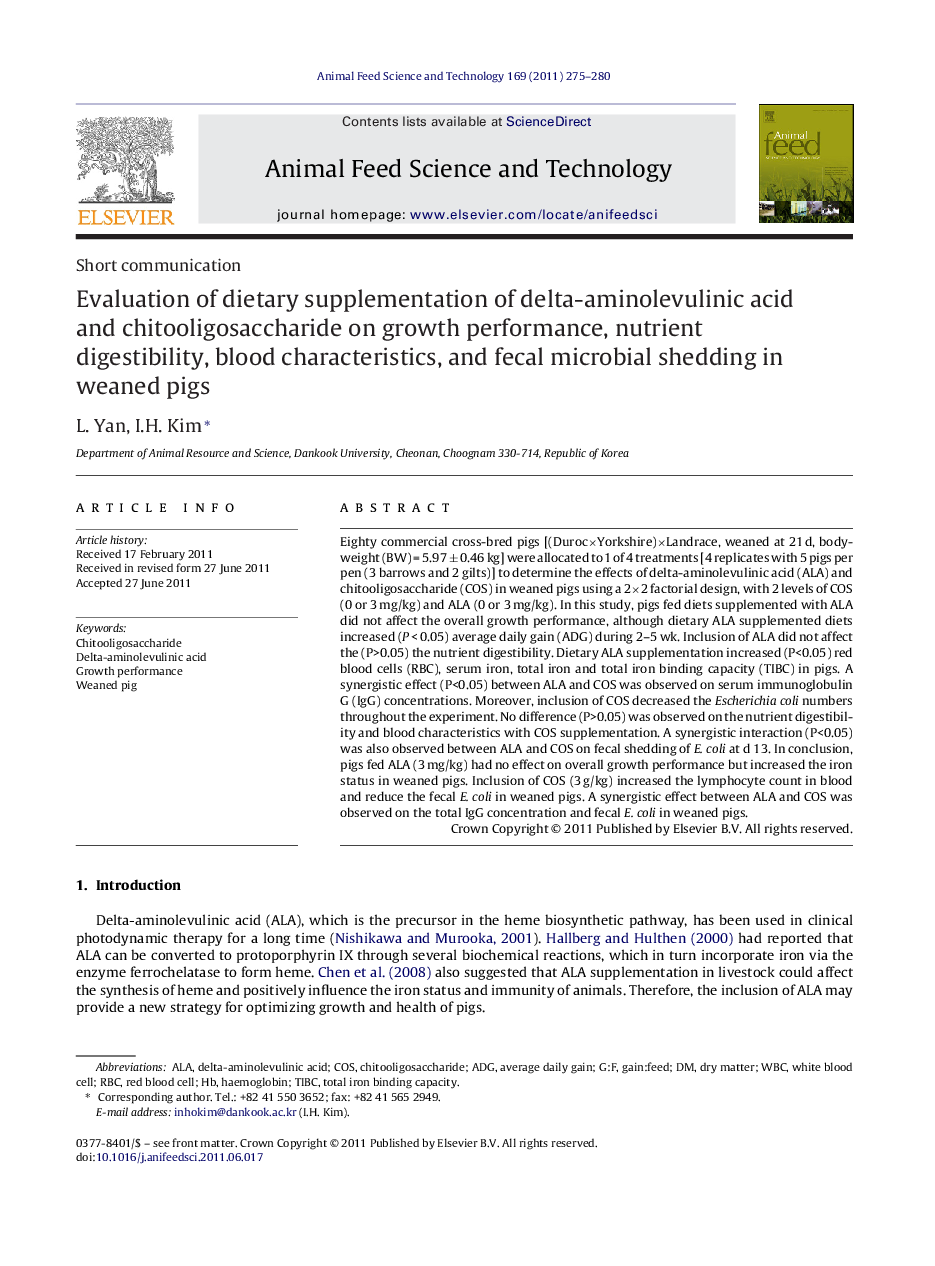| Article ID | Journal | Published Year | Pages | File Type |
|---|---|---|---|---|
| 8492272 | Animal Feed Science and Technology | 2011 | 6 Pages |
Abstract
Eighty commercial cross-bred pigs [(DurocÃYorkshire)ÃLandrace, weaned at 21 d, bodyweight (BW) = 5.97 ± 0.46 kg] were allocated to 1 of 4 treatments [4 replicates with 5 pigs per pen (3 barrows and 2 gilts)] to determine the effects of delta-aminolevulinic acid (ALA) and chitooligosaccharide (COS) in weaned pigs using a 2Ã2 factorial design, with 2 levels of COS (0 or 3 mg/kg) and ALA (0 or 3 mg/kg). In this study, pigs fed diets supplemented with ALA did not affect the overall growth performance, although dietary ALA supplemented diets increased (P < 0.05) average daily gain (ADG) during 2-5 wk. Inclusion of ALA did not affect the (P>0.05) the nutrient digestibility. Dietary ALA supplementation increased (P<0.05) red blood cells (RBC), serum iron, total iron and total iron binding capacity (TIBC) in pigs. A synergistic effect (P<0.05) between ALA and COS was observed on serum immunoglobulin G (IgG) concentrations. Moreover, inclusion of COS decreased the Escherichia coli numbers throughout the experiment. No difference (P>0.05) was observed on the nutrient digestibility and blood characteristics with COS supplementation. A synergistic interaction (P<0.05) was also observed between ALA and COS on fecal shedding of E. coli at d 13. In conclusion, pigs fed ALA (3 mg/kg) had no effect on overall growth performance but increased the iron status in weaned pigs. Inclusion of COS (3 g/kg) increased the lymphocyte count in blood and reduce the fecal E. coli in weaned pigs. A synergistic effect between ALA and COS was observed on the total IgG concentration and fecal E. coli in weaned pigs.
Keywords
Related Topics
Life Sciences
Agricultural and Biological Sciences
Animal Science and Zoology
Authors
L. Yan, I.H. Kim,
